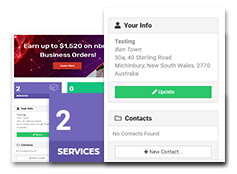Despite being a hot topic for both media and businesses worldwide, ASCE’s Civil Engineering Magazine reports that just over one-third of SMEs are using cloud computing today with a growth of 47.5% expected by 2016. A technological advance that’s being adopted rather cautiously, many business owners are yet to realise what this approach can do for them in terms of giving their company the opportunity to grow and compete with larger organisations. To shed some light on this matter, let’s take a look at some of the issues facing SME owners regarding cloud computing.
To begin with, the problem usually starts with time. Often, business owners are so caught up in their regular tasks that the IT aspects are left unattended. In their mind what’s more crucial for them are matters concerning sales, contacts, suppliers and most of all profit, thereby leaving them no time at all to sit down and analyse what long term benefits cloud computing could offer to their businesses.
Secondly, we have to acknowledge that there exists a knowledge gap between small business owners and solution providers. Surprisingly, there are owners who are not even aware that they are already using the cloud in some form; hence, they fail to realise the benefits that it’s providing them already. The positive side of this is getting them to adapt the cloud won’t be so hard anymore.
Thirdly, SMEs have this notion that cloud computing is a technology only for the big companies. Although a pure misconception, owners can’t be blamed due to the way it’s packaged and reported within the technology news category. Such presentation has led them to believe that cloud computing is too expensive and complicated for their business to handle.
Lastly, a large majority of the SMEs have gotten so accustomed to the way they operate that any new system introduced to them would be perceived as not necessary. Yes, they have fewer employees and less data, which makes tasks manageable; however, without looking into cloud computing they’re potentially missing the extra options that cloud computing can provide to their business, including cutting costs and business growth.
So then, how does Cloud Computing help Small Businesses?
Security
Integrating a backup, security, disaster recovery and business continuity plan through an in-house IT infrastructure can leave SMEs at risk to unforeseen circumstances, not to mention that it is costly and confusing. The Cloud eliminates such risks because data is held in highly secured centers and replicated in real time so any lost information can be restored instantly.
Cost Savings
Cloud computing gets rid of the need to buy or lease expensive computer equipment and software on a per PC basis for delivery of resources to employees. Business owners can literally say goodbye to the necessity of servers and backups. Think of all the money saved with those out of the way!
Increased Efficiency
Employee productivity and millions of dollars could be lost even after just a few minutes of a site being down. This type of situation is obviously stressful to business owners and management. But with the cloud, employees are able to work remotely at any time. So, if they can’t report to the office for whatever reason, the day isn’t wasted because they can work from home by accessing the software through the internet.
Ease of Management
With the service fully managed, cloud computing makes everything simple for IT management. There’s no more headaches of who to go to when something is not working, as support needs are reported to the service provider who will be responsible to fix it.
Access to Enterprise Technology
While large companies have the means and money to create their needed customised functionality, SMEs don’t. The cloud, however, allows them to take advantage of enterprise cloud applications that fit their requirements. Moreover, they can avail development, maintenance and upgrades of third party applications at a lesser cost.
And there’s even more Benefits!
For starters, it grows with their business, way farther than an office-based, static server can. Apart from what’s mentioned above, cloud computing enables the simplification and better forecast of IT budgets. Normally, IT setups cost companies a fortune brought about by the upfront hardware cost and ongoing fee of maintenance. With the cloud, all these expenses are carried by the provider and all owners have to pay for is the provider’s monthly subscription fee per user. So your costs are easily budgeted for on a per user basis, allowing your business to grow seamlessly and cost effectively.
Finally, cloud computing enables business owners to manage uncertainties better. It’s a reality that many companies today spend money on an IT system that either leads to even more ongoing management expenses or doesn’t provide the expected return of investment. The cloud, in comparison, reduces a company’s dependence on in-house technology as concerns regarding liability of procurement, management and upgrades are all addressed in an external data center. This means that businesses don’t have to worry about uncertainties in regards to large capital expenses anymore.
So why not move your small business to the cloud?
 Contact us
Contact us  Partner Login
Partner Login  Service Status
Service Status 


 July 22, 2013
July 22, 2013
 admin
admin
